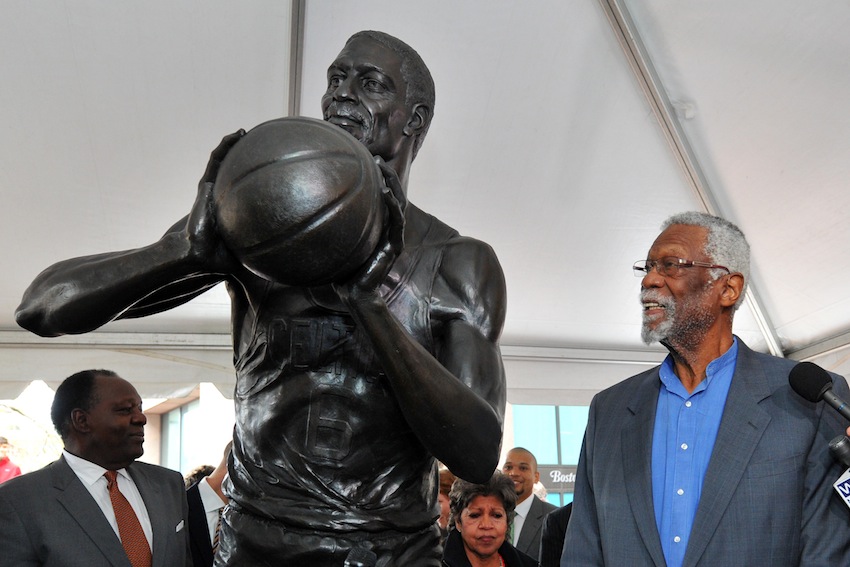Throwback Thursday: When Bill Russell Made His Celtics Debut
“Can an athlete be too good to be overrated?” The Boston Globe asked on December 19, 1956. They were talking about Bill Russell. His career at the University of San Francisco and in the Melbourne Olympics had brought him a national reputation, and so thus there was much anticipation after the Boston Celtics signed him. The buildup “rivaled that of Ted Williams,” the Globe wrote.
That said, there were doubts from some players and coaches about how well Russell would adapt to the professional game. He wasn’t the tallest in the league, and he wasn’t the strongest. This year, we’ve spent a lot of time reflecting on all that they didn’t yet know about Russell, what with Boston finally dedicating a statue to its legend. So it’s as good an occasion as any to remember a moment when that legend status wasn’t assured.
His first game with the Celtics came December 22 against the St. Louis Hawks. It was broadcast on national television. Russell played for 16 minutes and offensively, he didn’t stand out. He went 3-11 from the field and 0-4 from the free throw line.
But that’s not what national audiences remembered, and it wasn’t why Red Auerbach had brought him to the team. “We’ll count rebounds as baskets for you,” he had told his new star. In those 16 minutes, he took down twenty-one rebounds. Russell seemed taller on the court than his 6’9″ height suggested, and because he both jump higher and hanged in the air longer than the other players. Plus, he was fast. All that translated into what would become a trademark Celtics fast break. Years later, his teammate Bob Cousy remembered to the journalist David Halberstam that it was immediately clear to all those playing and watching that game: the league had never seen anything like Russell, and that the game was about to change to adapt to him.
As that week went on, the NBA saw crowds double on the road. Attendance records for the Celtics season were shattered. They were coming to see the novel new defensive play of Russell, who had quickly proved that, indeed, some athletes are as good as the hype suggests.



